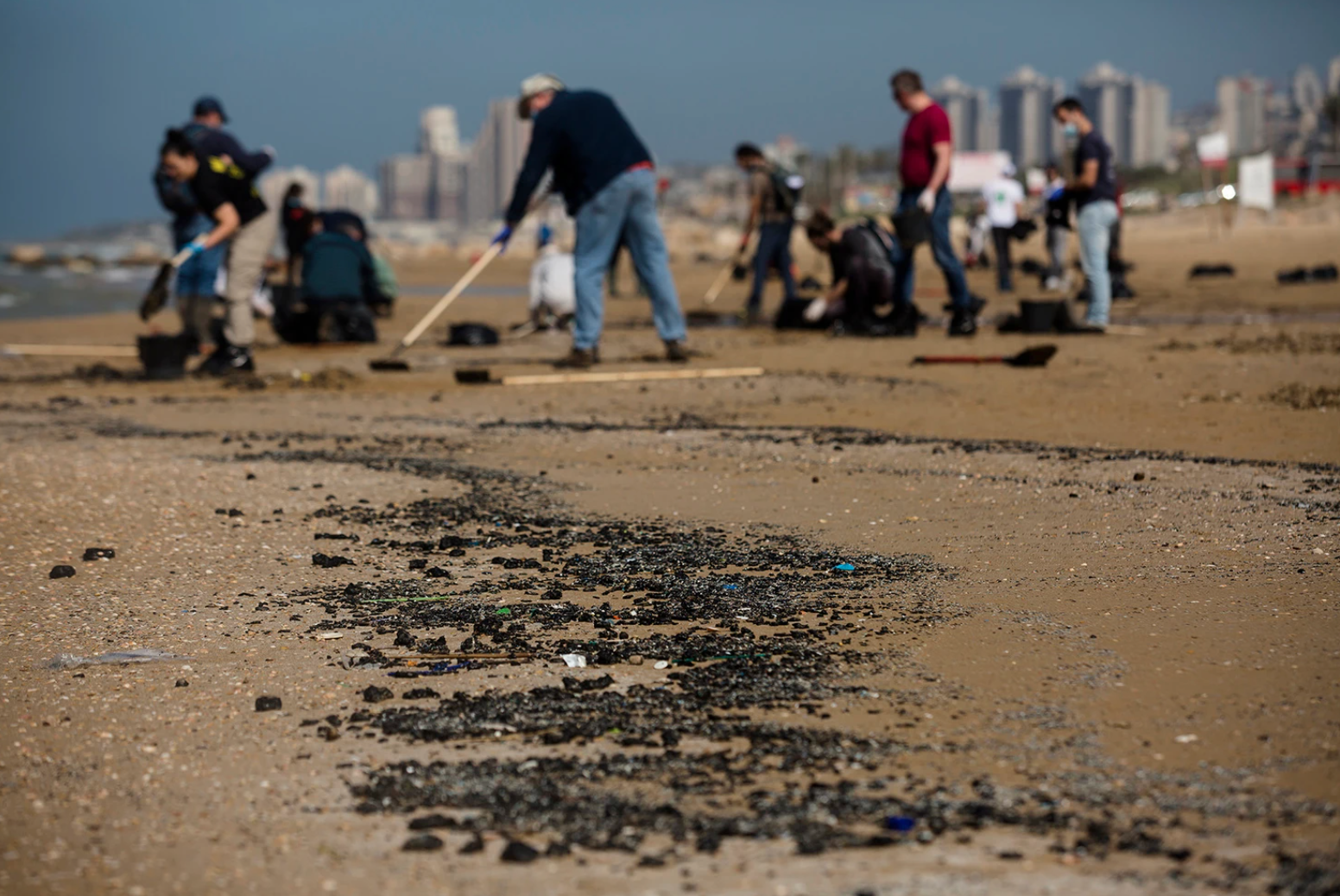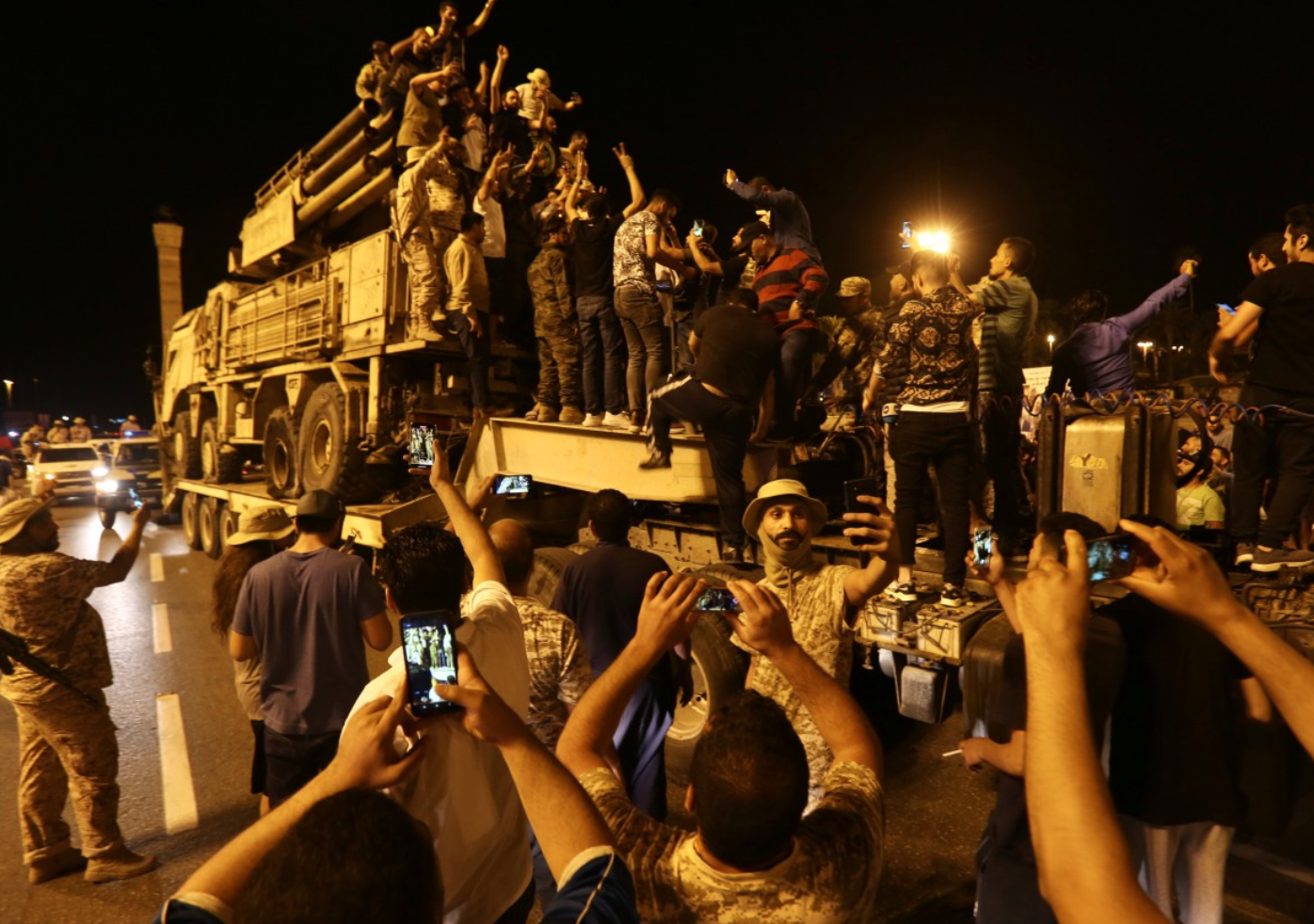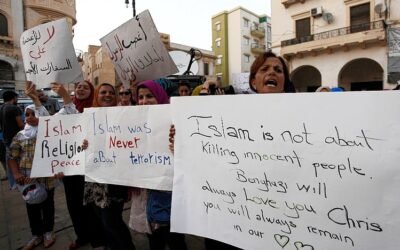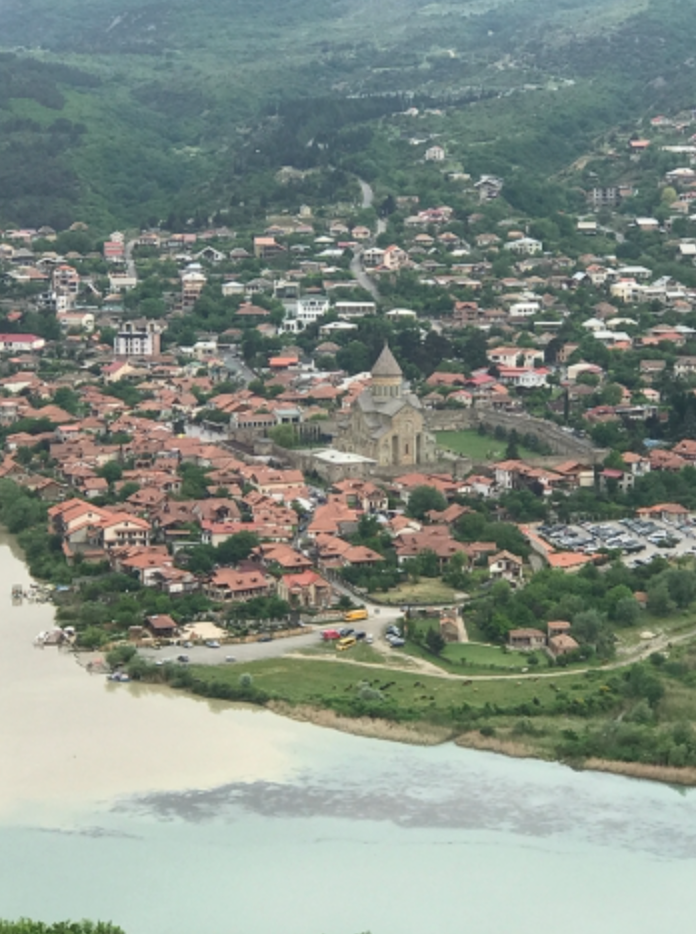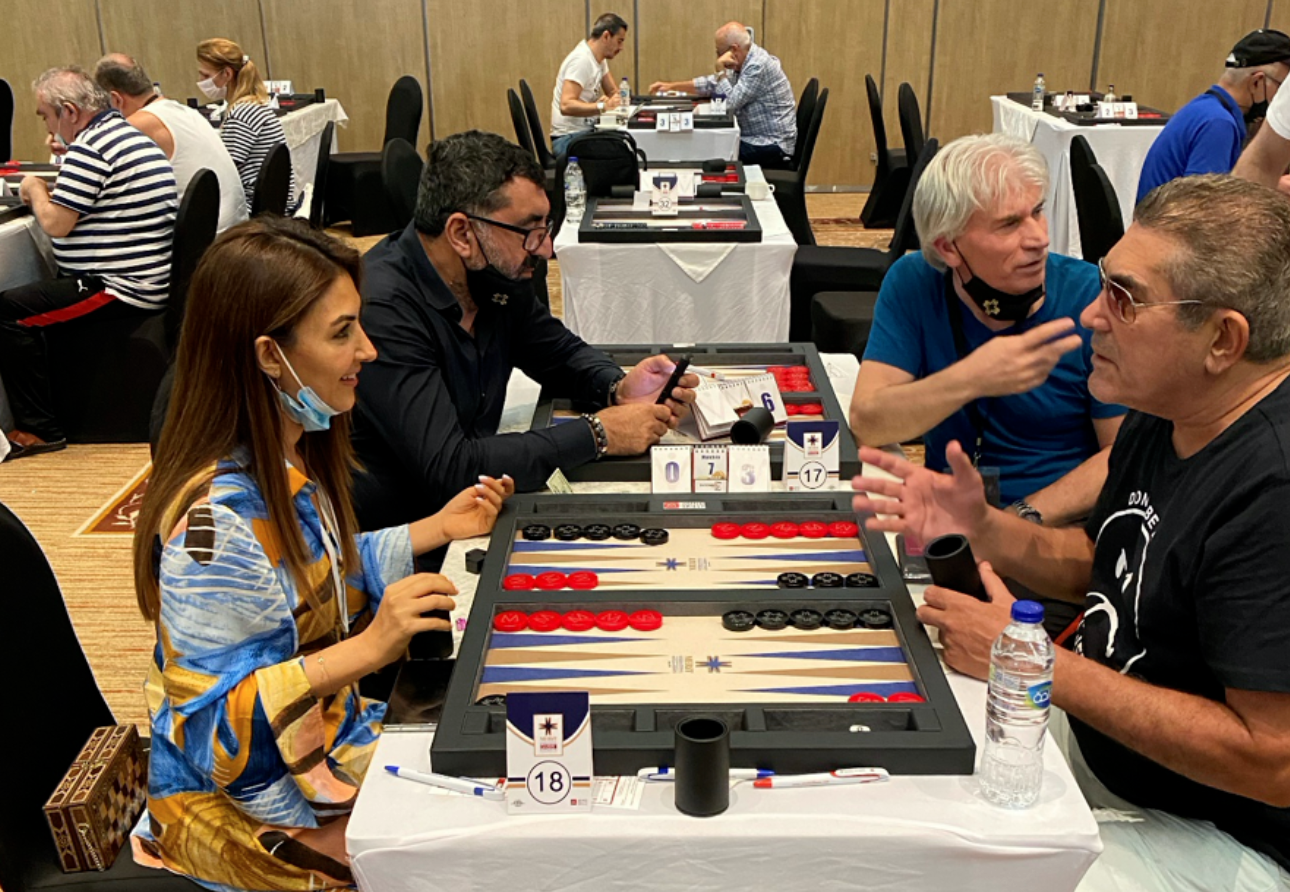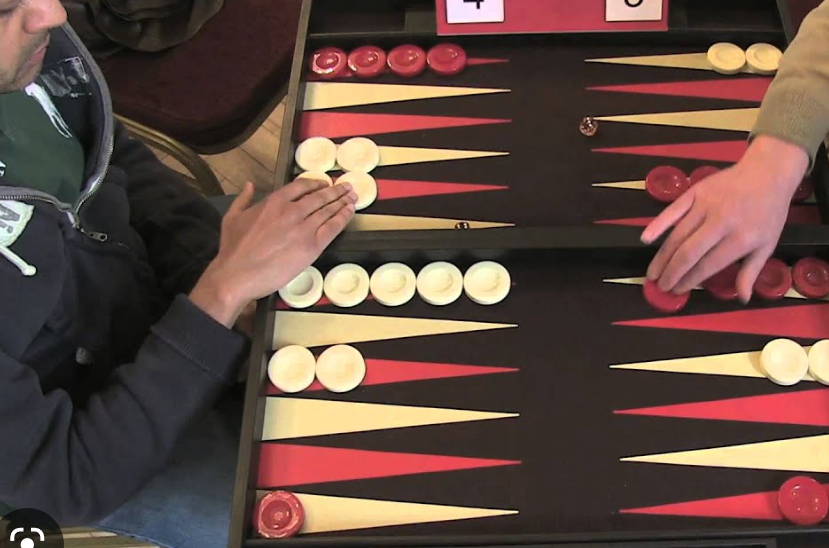Featured Articles:
Jason Pack was interviewed by ‘Sigma’ one of the leading Magazines in the e-gaming space: In life, every move has meaning. This is the same in backgammon. One dice roll can flip fortunes in an instant, while the impacts of seemingly small decisions ripple over time, fundamentally changing the trajectory of the game.
The Disorder Podcast - a top 20 UK Podcast currently co-produced by Goalhanger Podcasts - has recently partnered with RUSI.
Bringing together Qatar, Egypt, Saudi Arabia, and the United Arab Emirates to administer postwar Gaza could weaken Iranian and Russian regional influence. Jason Pack explores, in Foreign Press.
Andrew Keen and Jason Pack discuss the disorder in Israel, Gaza, the Middle East and beyond.
Understanding how important Ukraine is to U.S. security reveals how serious the president’s alleged high crimes were.
The West must understand the high-stakes game Russia is engaging in, and use calculated aggression to expose the Kremlin's weak hand.
Contemporary Geopolitics:
From Boston Globe: The US and its allies — not Israel — should handle Iran and Gaza. SUBHEADING: Now is time for something better than a ceasefire in the Middle East: lasting peace.
The Disorder Podcast - a top 20 UK Podcast currently co-produced by Goalhanger Podcasts - has recently partnered with RUSI.
What makes a martyr? Alexei Navalny shines a light on Vladimir Putin's evil tyranny.
The Israeli prime minister’s failed, immoral policies are a deadly own goal – and they are pure neopopulism.
Bringing together Qatar, Egypt, Saudi Arabia, and the United Arab Emirates to administer postwar Gaza could weaken Iranian and Russian regional influence. Jason Pack explores, in Foreign Press.
The Russian autocrat joins a long line of rulers to find their personal armies turning on them. Jason Pack looks to the past and foretells the future as the dust settles from mercenary rebellion in Russia, in the Telegraph.
As the situation in Sudan escalates, it is clear that the root problem of contemporary Western foreign policy isn’t meddling too much; it’s meddling too little. Jason Pack explains in The Telegraph.
Jason Pack and Lolita Brayman travel to the Georgian breakaway region of Abkhazia and mull over its unique history, and relationship with Russia on the one hand and Georgia on the other. What options does Tbilisi actually have on the Abkhaz Border?
Jason Pack and Stefano Marcuzzi argue that Libya’s CBL is a microcosm of our era of Global Enduring Disorder.
Jason Pack discusses his paradigm of Global Enduring Disorder for E-International and the experiences that brought him to his unique perspective on international relations.
The notion that American policies throughout the Middle East failed as a result of the US's engagement with Islamist actors' is incorrect.
When Sweden finally does join NATO – which is likely to happen later this year, it will mean the end of over 200 years of supposed ‘neutrality’. But was Sweden ever really neutral?
AUKUS may be the most consequential step toward reasserting meaningful Anglosphere collaboration that could serve as a model for how to address common problems and hostile states.
NATO membership signifies expedience at the expense of a self-aggrandizing national myth that has become increasingly difficult to sustain. The chaotic membership process for Sweden has been illustrative of the Global Enduring Disorder.
Russia’s campaign against Ukraine’s people deserves our full condemnation. But there are crucial areas (climate change and preservation of the Arctic) where our and global interests will be worse off if we don’t work with Russia.
With the erosion of the tentative co-operation of the post-cold war era, the Arctic seemed to be the last bastion of a functional rules-based international order
To understand where things currently stand in Libya, we turned to Libya expert and historian Jason Pack.
The war in Ukraine has now moved into its second, more protracted, and likely more violent phase. Unsurprisingly, given the extent of Russian atrocities, ongoing negotiations have borne little fruit.
The West must understand the high-stakes game Russia is engaging in, and use calculated aggression to expose the Kremlin's weak hand.
Libya and the Global Enduring Disorder sketches the myriad sinews of connections linking Libya, Ukraine, Syria, and Egypt.
Russia and the West are now at war. And the delicate dance leading to conflict between nuclear powers is a form of poker, not chess.
Instead of conceiving of Ukraine, Libya, or Syria as exotic, far-away conflict zones disconnected from Americans’ daily life, what if we looked at them as the result of America’s abrupt withdrawal from its empire?
Brian Klaas’ new book examines why certain types of individuals tend to attain institutional power, as well as how this power changes their psychologies, actions, and moral compass.
Ten years after Qaddafi’s death, Libya is a harbinger of the enduring global disorder to come.
Israeli voters face a toxic sludge and dubious propaganda about Libya and Iran as they head to the polls.
Understanding how important Ukraine is to U.S. security reveals how serious the president’s alleged high crimes were.
Haftar’s advance westwards has coincided with increasingly public support from Russia, Egypt, and even Trump - this is cause for concern.
Surprising as it may be stateside, U.S. President-elect Donald Trump is wildly popular in Libya, and Tripoli needs an unorthodox approach.
Trump would govern the US the way he ran his casino business, which has shaped many of his core beliefs about taxes, global trade, and the role of government.
The war in Libya is not about religion or ideology; it is about greed and vengeance. By not lending our tacit support to either side we could remove the poisonous injections of cash and weapons that drive the conflict.
On Libya:
It isn’t that no one cares about justice and human life, but that we have failed to confront the enemies of an ordered world. Jason Pack explores how the disaster in Libya, and other disparate daily catastrophes, are actually all symptoms of the Global Enduring Disorder.
Jason Pack and Stefano Marcuzzi argue that Libya’s CBL is a microcosm of our era of Global Enduring Disorder.
Jason Pack discusses his paradigm of Global Enduring Disorder for E-International and the experiences that brought him to his unique perspective on international relations.
The notion that American policies throughout the Middle East failed as a result of the US's engagement with Islamist actors' is incorrect.
To understand where things currently stand in Libya, we turned to Libya expert and historian Jason Pack.
Ten years after Qaddafi’s death, Libya is a harbinger of the enduring global disorder to come.
Oil production shutdowns are increasingly likely as several players in the sector push their own agenda.
The determinative factors that swayed the War for Tripoli - launched by Gen. Khalifa Hifter in April 2019 - were novel military, technological, and diplomatic phenomena.
Even if something resembling a political deal emerges and militias are progressively cut off from external sources of military support, the core economic issues that gave rise to the six years of Libyan civil conflict will still remain.
There are few contemporary global conflicts where the UN is still the primary mediator, peacekeeper, or forum for political negotiations. Libya is an exception.
Largely overlooked in international policymaking toward Libya’s current conflict is the role of corruption as a key driver of violence, as opposed to merely its byproduct.
International peace-making efforts in Libya remain doomed if they cannot address the root causes of malaise: flawed economic institutions and the lack of a social contract.
International players have the tools to prevent Libya from becoming enshrined as a kingdom of militias, but only if they transcend their divergent approaches to cut off the belligerents’ purse strings.
Following its territorial loss of Sirte in December 2016, the Islamic State in Libya has rebounded to wage a war of attrition that seeks to derail Libyan state formation.
After years of civil war in Libya, the recent plan to hold elections there seems like a rare ray of sunshine, creating hope that the country may be on the path to peace. However, caution is needed.
This article looks at how al-Qaida-linked groups focus on the local struggle in Libya, how they have shaped their strategies and activities in the country, and what impact this has had on the communities where they are active.
This article examines ISIS’s pre-history, birth, expansion, consolidation, and dispersal in Libya, as well as the broader political context of the country.
Haftar’s advance westwards has coincided with increasingly public support from Russia, Egypt, and even Trump - this is cause for concern.
Surprising as it may be stateside, U.S. President-elect Donald Trump is wildly popular in Libya, and Tripoli needs an unorthodox approach.
Despite flaws, the Libyan deal represent a significant achievement. A mediated settlement was the only way to prevent further military escalation.
While Miliband is right to point out that Libya would have fared better had the Western administered more capacity-building assistance after Qadhafi’s fall, his speech writers haven't studied the history of Western involvement in Libya enough.
The war in Libya is not about religion or ideology; it is about greed and vengeance. By not lending our tacit support to either side we could remove the poisonous injections of cash and weapons that drive the conflict.
There is no appetite among Libyans for foreign peacekeepers. But there needs to be a more visible and substantive multilateral commitment to Libya.
Libya’s leadership must put an end to the militias’ mythology by finally defending itself in the court of public opinion.
Inter-group squabbling reigns as the country stalls on drafting its new constitution.
Given the state of misunderstanding of Libyan realities on the Hill, it is unsurprising that Congress seeks to treat the new Libyan government as untrustworthy partners and therefore seek to securitize our bilateral relationship.
Libyans want to put the Qadhafi era behind them, but they also want capable individuals to draft the constitution, keep the lights on and the oil flowing. To achieve this they need a strong, moderate leadership.
At present, Libya’s new central government is so weak that swaths of the country are ungoverned space. Since multilateral engagement won the war, it is now time to reconstitute the coalition to win the peace.
Libya should be held up as a poster child for a Western diplomacy that seriously engages with Muslim populations rather than just propping up their dictators.
Spontaneous street demonstrations denouncing the attack in Benghazi sought to pressure the government to act against its perpetrators, suggesting that Libyans are determined to build an inclusive society free from fear.
Think Tank Scholarship:
From Boston Globe: The US and its allies — not Israel — should handle Iran and Gaza. SUBHEADING: Now is time for something better than a ceasefire in the Middle East: lasting peace.
Jason Pack and Stefano Marcuzzi argue that Libya’s CBL is a microcosm of our era of Global Enduring Disorder.
Jason Pack discusses his paradigm of Global Enduring Disorder for E-International and the experiences that brought him to his unique perspective on international relations.
The determinative factors that swayed the War for Tripoli - launched by Gen. Khalifa Hifter in April 2019 - were novel military, technological, and diplomatic phenomena.
Even if something resembling a political deal emerges and militias are progressively cut off from external sources of military support, the core economic issues that gave rise to the six years of Libyan civil conflict will still remain.
There are few contemporary global conflicts where the UN is still the primary mediator, peacekeeper, or forum for political negotiations. Libya is an exception.
Largely overlooked in international policymaking toward Libya’s current conflict is the role of corruption as a key driver of violence, as opposed to merely its byproduct.
International peace-making efforts in Libya remain doomed if they cannot address the root causes of malaise: flawed economic institutions and the lack of a social contract.
International players have the tools to prevent Libya from becoming enshrined as a kingdom of militias, but only if they transcend their divergent approaches to cut off the belligerents’ purse strings.
Following its territorial loss of Sirte in December 2016, the Islamic State in Libya has rebounded to wage a war of attrition that seeks to derail Libyan state formation.
After years of civil war in Libya, the recent plan to hold elections there seems like a rare ray of sunshine, creating hope that the country may be on the path to peace. However, caution is needed.
This article looks at how al-Qaida-linked groups focus on the local struggle in Libya, how they have shaped their strategies and activities in the country, and what impact this has had on the communities where they are active.
This article examines ISIS’s pre-history, birth, expansion, consolidation, and dispersal in Libya, as well as the broader political context of the country.
Cultural Commentary:
Jason Pack discusses his paradigm of Global Enduring Disorder for E-International and the experiences that brought him to his unique perspective on international relations.
In his latest work, I, Stalin, Martin Van Creveld asks us to have sympathy for the devil.
Brian Klaas’ new book examines why certain types of individuals tend to attain institutional power, as well as how this power changes their psychologies, actions, and moral compass.
This year’s holiday season follows rapidly on the heels of the most divisive election in American history. Its sheer vitriol and long-term polarising implications overtly challenge all possible prior assumptions about ‘our shared humanity’.
This November, a second American civil war could erupt when one side loses the elections and the other takes to armed resistance or looting.
YogoNet interviews Jason Pack about the Trump effect on global gaming.
As if by some undiscovered Newtonian law, today's attempts at humanitarian internationalism are sowing the seeds for tomorrow's resurgent anti-globalization nationalisms.
Neel Burton's Plato: Letters to My Son attempts to rescue Plato from irrelevance and guide another generation of readers and leaders along the path of self-knowledge.
On Wine:
This year’s holiday season follows rapidly on the heels of the most divisive election in American history. Its sheer vitriol and long-term polarising implications overtly challenge all possible prior assumptions about ‘our shared humanity’.
The Brotherhood of Man usually seems like an abstract concept, but when total strangers invite you into their home to feast on local specialties, nothing could actually feel more concrete.
An examination of the major Georgian Qvevri wine varieties.
Jason Pack interlaces philosophy and flavour as he investigates the Qveri-aged wine of Georgia…
Getting there isn't half the fun, but the geopolitics is.
Backgammon & Game Theory:
Jason Pack was interviewed by ‘Sigma’ one of the leading Magazines in the e-gaming space: In life, every move has meaning. This is the same in backgammon. One dice roll can flip fortunes in an instant, while the impacts of seemingly small decisions ripple over time, fundamentally changing the trajectory of the game.
Jason Pack addresses recent proposals on the future of the Backgammon World Championships and suggests some alternative solutions to make Backgammon great again.
The West must understand the high-stakes game Russia is engaging in, and use calculated aggression to expose the Kremlin's weak hand.
Russia and the West are now at war. And the delicate dance leading to conflict between nuclear powers is a form of poker, not chess.
It has been a little over a year since the UAE and Israel inked their historic Abraham Accords. Separately from those accords, much has changed in the global political climate.
Jason Pack was interviewed by Greek VICE News following his 2018 Backgammon World Championship first-place results in the Doubles Tournament and the Belair Team Tournament.
YogoNet interviews Jason Pack about the Trump effect on global gaming.
Is the Republic of Georgia, and the Caucasus region in general, a part of Europe or a part of Asia? As a means to solve this eternal question, Jason Pack and Jennifer Sagal went to Georgia to participate in the first international backgammon tournament for journalists, and to examine the debate…
Jason Pack covers and analyses Lars Trabolt and Slava Pryadkin’s 2013 World Backgammon Championship finals match.
Jason Pack’s article in the September/October edition of Prime Time Backgammon highlights the amazing performance of Akiko in winning the 2014 World Championships…
Lars Trabolt vs. Slava Pryadkin World Championship Final Part 2: How to Give a Gammonish Recube
Jason Pack introduces the 2014 Ides of March Cambridge Invitational Tournament of Backgammon
The first part of a four part series where Jason Pack covers the final match of the Backgammon World Championship…
Jason Pack analyses the 2013 Petko Kostadinov vs. Lars Trabolt match, the Semi-Final of the World Backgammon Championship
Jason Pack talks us through the 2013 London Open and investigates why the ‘Giants’ who attended the up and coming backgammon tournament - Raj Jansari, Julian Fetterlein, and Carlo Melzi - stand so tall above the rest…
After winning the 2013 British Open of Backgammon, Jason Pack decided to try his hand at writing Backgammon articles, commenting on the psychology of the game, the influence of technology, analyzing various cube decisions, and various other themes. In his first article on backgammon, he explores what makes the game as much an art as a science…
NATO:
The Russian autocrat joins a long line of rulers to find their personal armies turning on them. Jason Pack looks to the past and foretells the future as the dust settles from mercenary rebellion in Russia, in the Telegraph.
When Sweden finally does join NATO – which is likely to happen later this year, it will mean the end of over 200 years of supposed ‘neutrality’. But was Sweden ever really neutral?
AUKUS may be the most consequential step toward reasserting meaningful Anglosphere collaboration that could serve as a model for how to address common problems and hostile states.



























